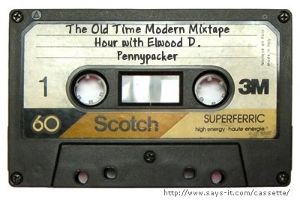There Will Be Blood
Paul Thomas Anderson's fifth feature leaves his familiar zone: the final third of the 20th century and the early days of the 21st in Southern California and delves into unchartered territory: the dawn of the 20th Century. It departs from the modern conundrums of life and finds itself at the start of modernity, when the modern American story first took root, when the outcome of the homesteaders met the century that defined a civilization.
The remainder of this review will bear spoilers so be warned:
Never has there been a film that so bluntly states that in the end, Selfishness should triumph overall. In no uncertain terms, P.T. Anderson takes the modern Republican party and makes it look at its origins in the hellfire of California oil wells, via the work of Upton Sinclair. The film is the account of the genesis between the barons of unbridled new capitalism and the sham of religion, the birth of the fruit most exemplified by Ronald Reagan. And in the end, it sides with the capitalist. At least the ruthless oilman understands his dimensions, he understands his goals and his motivations. He's not deluding himself with the grandeur of superstition, false prophecy, and all around bullshit. Even when the faith brings about a goodness in some people that can give the oilman pause, in the end it is the foolishness of the believers that bears witness to the primacy and supremacy of Daniel Plainview. His last name could not be more obvious. In opposition to the masquerade of Sunday, there is the plain view.
In other words, for all his Mormonism, Mitt Romney is vindicated by his venture capitalism, at least in the eyes of There Will Be Blood. And the film is the ultimate judgment on George W. Bush's electoral victories, and it exposes those victories for the Popsicle sticks that they were. Of course, Daniel Plainview's simple quest for the wealth from oil, to facilitate a very sympathetic need to escape from the world, to hide away from people, is much more acceptable than a modern American company's quest for ultimate profit by hidden fees and abuse of customers. If Anderson's opus treads wrongly in one fashion, it is the complacency with which it makes even the worst of Plainview seem infinitely better than any aspect of Sunday's sham, and that's only because of what it implies for everything since.
And now the judgment of the quality of an entertaining picture:
Anderson has never faltered as a director, even in his self-congratulatory masturbation of Magnolia. But he has never been more lucid and better than here. Every shot, every frame is a crisp capture of the narrative. His leap from his familial surroundings to new ground not only signifies his endurance as a landmark director, but as a contributor to the American canon, the pantheon of cinema.
Daniel Day-Lewis is receiving his biggest raves since My Left Foot and he deserves every inch of it. From the meticulous care of his accent to his facial expressions to his sheer presence, the actor may be channeling a thread from his role of Bill Cutting in Gangs of New York to here. One could see a little hammyness in both roles but few actors could be faced with such obvious over-playing and then tame it like Daniel Day-Lewis does.
The supporting cast is flawless in every sense of the word, led by Paul Dano - who last year was arguably the one cast member of Little Miss Sunshine who didn't deserve an Oscar nomination but who deserves one here. The kid is now a man.
Did Paul Sunday actually exist? This ambiguousness is the trademark of the new great films of our era...which brings us to the ultimate question:
How does it stack up? With a couple exceptions, There Will Be Blood is edging out No Country For Old Men for best picture. Placements by Atonement and The Diving Bell & The Butterfly aside, these two neo-westerns are duking it out and Anderson's work seems to be getting the best of the Coens. But is it justified? No. Of course Hollywood would respond to a story about its own origins before a nihilistic weave of malfeasance, but that does not obscure the truth. For all the power of There Will Be Blood, it doesn't hold a candle next to No Country For Old Men. Where the former lavished in its own compelling opulence, the latter exulted in its simplicity. Where the former relied on the gravity and gravitas of its star and his sincerity in every single moment of every single scene of the work, the latter took all things in equally, from the concept of the screenplay to the equity of the ensemble, to the sheer horror of its stillness. If one character dominated the latter it was because he benefited from the energy around him, whereas the former would have fizzled out if not for what its one character brought out of the rest of the picture.
In what should have been the ultimate battle, Anton Chigurh made mincemeat of Daniel Plainview.
Chigurh 1, Plainview 0.
Labels: cinema


0 Comments:
Post a Comment
<< Home